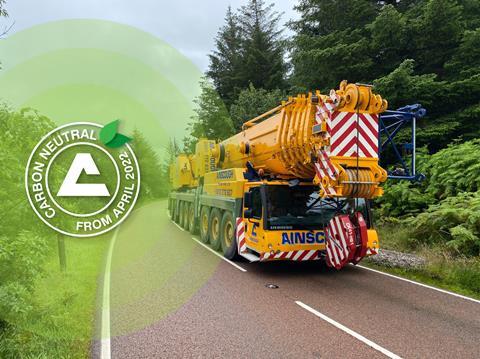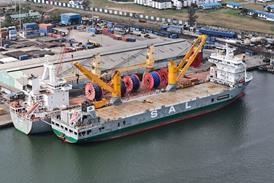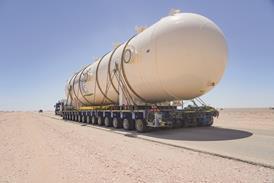UK-based Ainscough Crane Hire has committed to using hydrogenated vegetable oil (HVO) in its fleet, which consists of over 400 cranes and more than 30 transport and heavy goods vehicles.

Ainscough anticipates that the adoption of HVO will result in a further CO2 reduction of up to 90 percent, saving in excess of 14,000 tonnes of CO2 per year. As part of the company’s goal to be carbon neutral from April 2022, an additional 5 percent reduction has been achieved through wider energy saving initiatives with the other 5 percent met via the use of UK-based residual carbon offsetting.
HVO can be used as a direct replacement for diesel – meaning no modifying of Ainscough’s fleet is required – and has a storage life over 10 times that of traditional diesel. Crane manufacturer Liebherr has supported the extensive trials of HVO across Ainscough’s fleet to confirm emissions, performance and viability.
The wider environmental initiatives across the business include substantially increasing the number of Stage V engines in Ainscough’s fleet; and smart lighting and upgrades to heating systems.
Peter Gibbs, Ainscough Crane Hire ceo, said: “As the UK’s leading crane hire company we have a responsibility to lead by example in the challenge of preserving the planet for future generations. Our fuel usage is the most significant aspect of our carbon footprint, accounting for the vast majority of the business’ carbon emissions. By achieving this 95 percent reduction and undertaking offsetting we have been able to make sure our company will be a carbon neutral business within the first months of 2022.
“Everyone working in construction needs to be bold in order to ensure we can reach our collective net zero targets, and we feel this announcement will be of great benefit to our partners throughout the industry.”
He added that the adoption of HVO has been made possible thanks to Ainscough’s broad depot network, meaning the company’s team has easy access to refuelling locations across the UK.
















